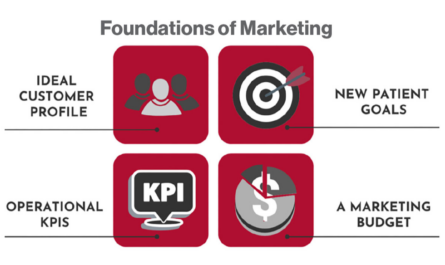By DEO MAP
Like culture, coaching has recently become one of the major buzzwords in the workplace. While it might seem vague on the surface, the idea of coaching is a simple approach to management that allows you and your team to accomplish the daily tasks that are required of operating a dental practice.
Setting a foundational process of coaching your employees is a powerful way to encourage growth and productivity within your organization. By establishing a coaching relationship, you are instilling a sense of trust that you and your teams can collaborate to work towards the mission and vision of your company, while improving daily processes and workflows.
What coaching is
There is a common misunderstanding about business leaders, likely perpetuated by traditional workplace cultures: when you have the title of manager, there’s an expectation that you have all of the answers. That, because you are in a management position, you need to know how to do everything.
This simply isn’t true. Effective coaching isn’t about having all the answers – in fact, you likely won’t have all, if any, of the answers. The best thing that you can do for yourself, your team, and your organization is change that mindset.
In a coaching relationship, you get to collaborate, connect, and coordinate with your teams to find the answers to the challenges that your organization is facing. Coaching is an effective method of leadership because it builds a sense of trust and opens the possibility of a relationship with your employees.
Here, you get to facilitate the development of your teams and provide teaching moments when necessary. Drawing on your own experience, you can guide your employees towards the solution without ever giving a straight up answer. It’s less about providing answers and more about asking the right questions to help them find the answer on their own.
One of the biggest opportunities you have in a coaching relationship is to open yourself up to feedback. Ask your team questions like, “Am I providing you with the tools you need to get the job done? How can I better support you? What ideas do you have?”
How are you growing?
As we have established, a significant component of coaching is asking questions. The ultimate coaching question is “How are you growing?” There are three different types of specific growing questions that you can ask your team: growing up, growing in, and growing out.
Growing “up” refers to growing into a different role inside of your company. This isn’t really tied to whether the employee wants a promotion or a raise but is meant to signify a sense of growth: finding a role that better fits their skills, their journey, trajectory, and the challenges they want to take on. We grow into a role because that role is the right fit for the growth process.
Growing “in” is a conversation about mastery. This is where some of the career development pathways will come in, where the employee has an intentional growth strategy for the role that they currently have. Growing in will consider how employees are getting better at providing value in the next 90 days. A coaching relationship allows you to come alongside your team and help them discover what that might look like.
Growing “out” is the intentional, strategic growth out of the company because it’s the best thing for the future of the company, the employee, or both. If we want to elevate people to their highest and best purpose, can we help them grow out of the company? The reality is that this is already happening, at least on some level. When you are having these conversations with your employees, these situations won’t catch you by surprise and you can coach them through the process of growing out of your organization.
Having difficult conversations
Difficult conversations require vulnerability, which is never easy. There’s typically an emotional charge in the air, making them uncomfortable and unpleasant for everyone involved. At work, these conversations have to happen when expectations aren’t being met or boundaries aren’t being respected.
Interestingly, we somehow falsely believe that if we don’t have difficult conversations and avoid conflict, we will have a great relationship. Are your team members coming in late? Are they not meeting KPIs? Are they violating company policies? Whatever might be going on needs to be addressed, no matter how difficult the conversation might be. The speed at which your practice will grow is directly proportional to the frequency and the quality of the difficult conversations you have.





